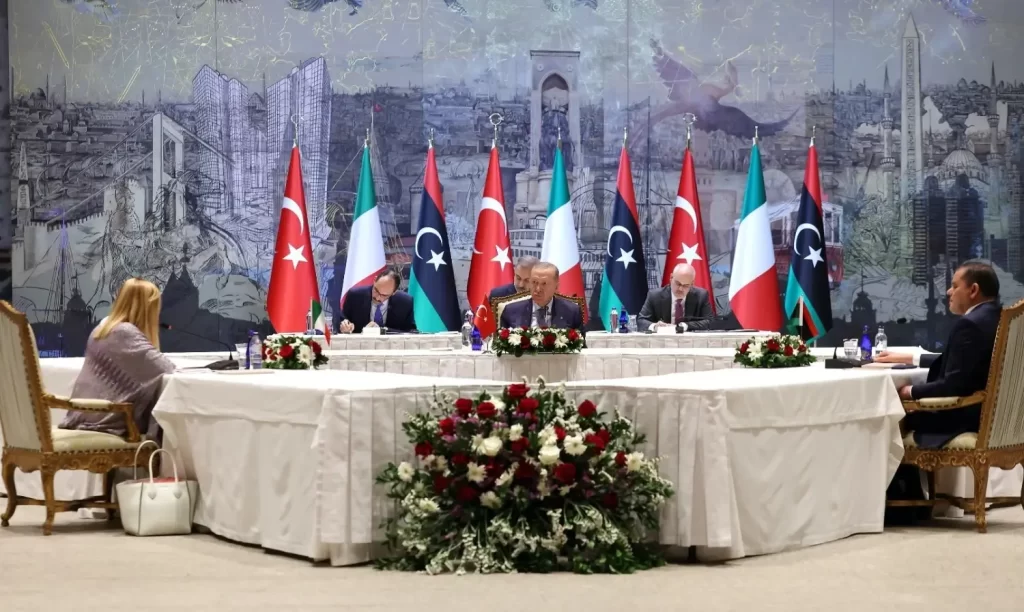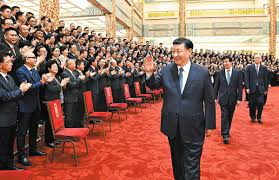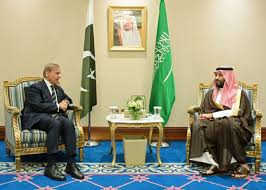Erdoğan hosts Italy, Libyan PMs for tripartite summit

Istanbul: The high-level meeting was reportedly convened to advance the political process in Libya and to address strategic issues of shared concern. The agenda included economic development in the Mediterranean, enhancing cooperation in the energy and oil sectors, and tackling irregular migration and its implications for regional security and stability.
According to a statement from the Libyan Government of National Accord (GNA), the summit was part of continuing coordination between Libya, Türkiye and Italy, aimed at “promoting common approaches that serve the interests of the region’s peoples and contribute to supporting stability and international cooperation.”
All three countries lie along major routes into the European Union for people fleeing conflict and poverty, with Libya remaining the principal departure point. Italy has received roughly 21,000 migrants from Libya this year.
As NATO allies, Türkiye and Italy have strengthened their roles as regional bridge-builders, enhancing bilateral cooperation in trade and defense. Earlier this year, Turkish drone manufacturer Baykar and Italian defense conglomerate Leonardo signed a cooperation deal.
Diplomatic engagement between Erdoğan and Meloni has also deepened, marked by regular phone calls and Erdoğan’s visit to Rome in April for a bilateral summit. At that time, both leaders expressed support for a U.N.-facilitated political process that would safeguard Libya’s unity and security.
Libya remains gripped by political division and intermittent conflict more than a decade after the 2011 uprising that ousted longtime leader Moammar Gadhafi.
The country is currently split between two rival governments — the U.N.-recognized administration led by Dbeibah in Tripoli, and a parallel government based in Benghazi headed by Osama Hammad and appointed by the eastern-based parliament.
Efforts by the United Nations to hold nationwide elections have repeatedly faltered, prolonging the political deadlock.
Türkiye has played a role in supporting the Tripoli-based government, especially since the signing of maritime and security agreements in 2019 and military aid provided during the civil conflict against eastern commander Khalifa Haftar.





